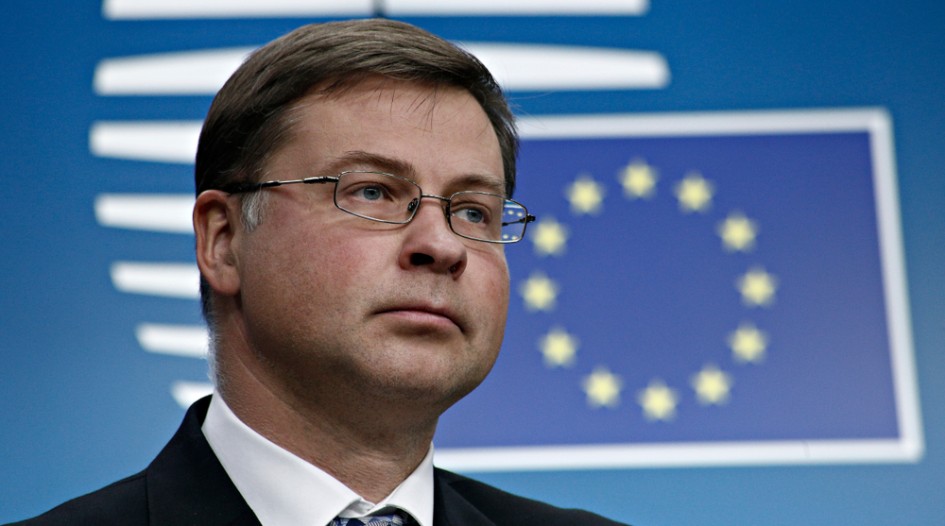EU defends decision to grant BlackRock banking reg advisory role

By Emilio Demetriou-Jones From GBRR
The European Commission has told lawmakers it found no conflicts of interest in selecting asset manager BlackRock to advise on incorporating environmental and social factors into European banking regulations.
The Commission’s vice-president Valdis Dombrovskis, who heads the institution’s financial services policy brief, responded to a group of concerned members of the European Parliament (MEPs) in a letter on 5 June.
The Commission said BlackRock’s promise to physically segregate the project activities from its investment arm, among other “technical and procedural safeguards,” assured the body there would be no professional conflicts of interest.
Dombrovskis said the evaluation committee did not find any professional conflicts of interest between BlackRock’s task and its current investment practices.
The letter added that the Commission itself remained in charge of developing the final tools and mechanisms to integrate environmental, social and governance-related (ESG) factors in the prudential supervision and regulatory risk analyses, and BlackRock will only identity the “current situation and difficulties”.
Dombrovskis reaffirmed the Commission’s commitment to the European Green Deal Investment Plan and said it was his “strong conviction that the green transition cannot happen without the full participation of the private sector.”
BlackRock’s Financial Markets Advisory (FMA) arm will carry out the study. The department offers sustainability and climate risk advisory as well as capital markets and transaction support.
A large group of MEPs outlined several concerns over conflicts of interest in a joint letter and then a series of parliamentary questions on 20 April, which was led by Damien Carême of the Green Party in France.
BlackRock is one of the three largest investors in each of the world’s eight largest oil companies and features in the top 10 biggest investors in the 12 most systemically important global banks.
In a press release dated 10 June, Carême said the Commission’s response was “not satisfactory” and did not ease the group’s concern surrounding the conflict of interest issue.
“It says that BlackRock will provide physical segregation between the departments, but who can seriously believe that? And how will the Commission be able to verify it?” he probed.
BlackRock states that its FMA arm is a distinct business within the firm, with “established policies and procedures to safeguard the sensitive nature of client information”, and says it operates behind a stringent information barrier.
Carême tells GBRR that the “easiest way to solve the issue at stake” is for the Commission to reconsider the award.
“The contract should be cancelled and the call for tender should be relaunched in order to have this study done by a contractor without any conflict of interests. It is a question of ethics and trust in our public institutions,” he says.
Carême wrote a second letter on 11 June to the European Ombudsman urging it to further look into BlackRock’s offer. The Ombudsman officially opened the case on 20 May, and said it would decide on whether further inquiry steps are necessary following the Commission’s response.
When contacted, BlackRock told GBRR it had no further comment on the matter.
BlackRock beat eight other unnamed bidders to the contract for the study with a bid of €280,000 – almost half the Commission’s estimated value of the project.
The MEPs labelled the offer “abnormally low” in their April letter, and called for an investigation to ensure there was no “price dumping”.
The Commission said it was an open tender due to the fact the estimated value of the study (€550,000) was above the relevant threshold of €139,000 for public procurement contacts.
The letter also assured that the tender procedure followed the relevant regulation and referred to its “price-quality ratio”, whereby the technical quality of the offer accounts for 70% of the total score and price makes up the remaining 30%.





